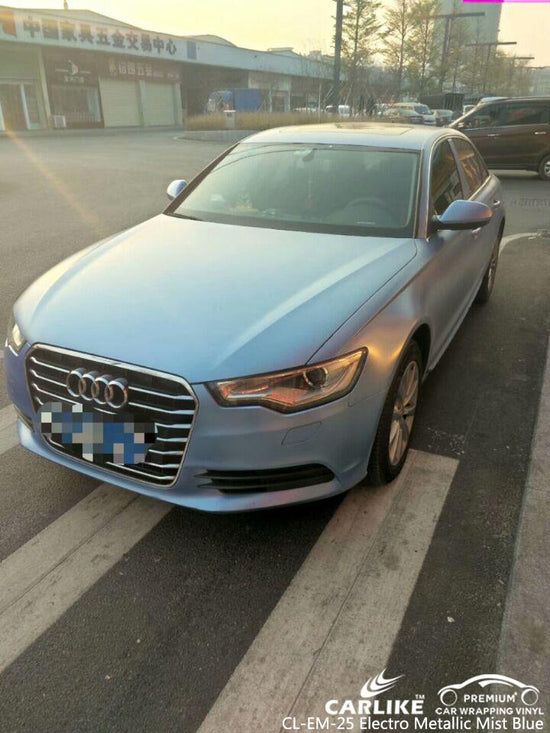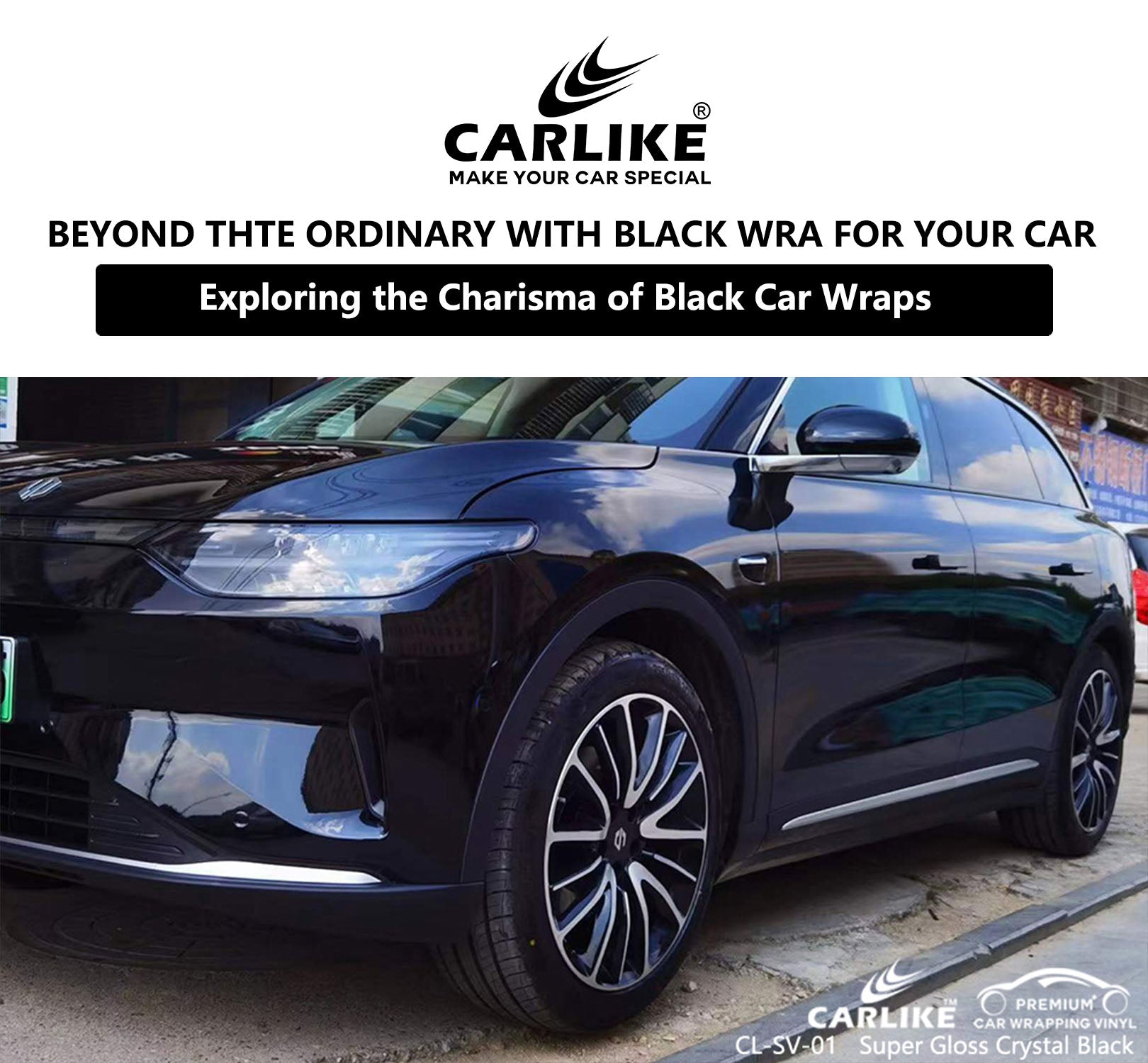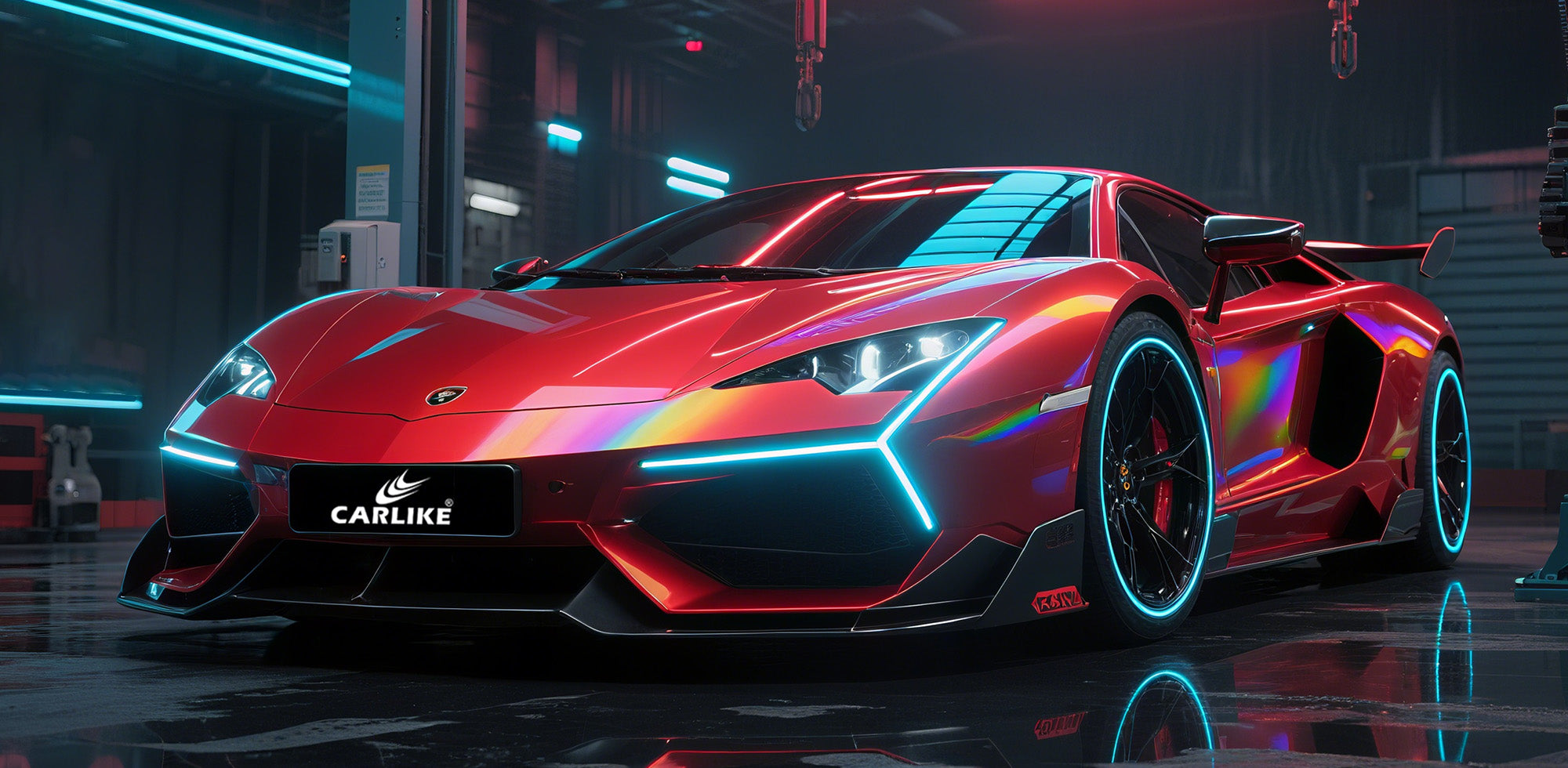Factors Influencing the Cost of Car Wrapping
Car wrapping is a popular method of transforming the appearance of a vehicle without resorting to a full paint job. It involves applying a specialized vinyl wrap to the vehicle's exterior, creating a new color, texture, or design.
However, the cost of car wrapping can vary significantly based on several key factors. Understanding these factors is essential for car owners looking to decode the pricing puzzle of car wrapping.
1. Size of the Vehicle: One of the primary factors influencing the cost of car wrapping is the size of the vehicle. Larger vehicles, such as SUVs, trucks, or vans, generally require more vinyl material to cover their surface area. Consequently, the larger the vehicle, the higher the cost of the car wrapping.
2. Complexity of the Design: The complexity of the design chosen for the car wrap can also impact the overall cost. Intricate patterns, custom graphics, or designs that require precise alignment and attention to detail will require more time and effort from the professional installers. As a result, more complex designs often come with a higher price tag.
3. Type and Quality of Vinyl: Car wraps come in various types and quality levels, each with its own price range. There are basic vinyl options that provide a simple color change, intermediate vinyl with additional features like textured finishes, and premium or high-performance vinyl that offers enhanced durability and advanced features. The type and quality of vinyl chosen will influence the overall cost of the car wrapping project.

4. Additional Services: Car wrapping projects often involve additional services that can impact the total cost. For example, window tinting, which is commonly done alongside car wrapping, can add to the overall expense. Paint protection film, which provides an extra layer of protection for the vehicle's paint, is another service that might be included. These additional services should be factored into the cost estimation.
5. Location and Labor Costs: The geographical location where the car wrapping service is being performed can also affect the price. Areas with a higher cost of living or where the demand for car wrapping is higher tend to have higher labor costs. It's essential to consider the regional pricing trends when budgeting for car wrapping.
6. Warranty and Installation Expertise: Reputable car wrapping companies often offer warranties on their workmanship and the durability of the vinyl. The inclusion of a warranty and the expertise of the installers can influence the overall cost. Companies with a proven track record of high-quality work and reliable warranties may charge a premium compared to less experienced or lower-quality providers.
7. Preparatory Work Required: The condition of the vehicle's surface before the car wrapping can also affect the cost. If the vehicle requires extensive cleaning, paint correction, or removal of previous wraps or decals, it will increase the labor and time required for the project, thus impacting the cost.
By considering these factors, car owners can better understand the various elements that influence the pricing of car wrapping. It is essential to communicate with professional car wrapping companies, provide them with the necessary information, and obtain detailed quotes to have a clear understanding of the cost involved.
With proper research and consideration of these factors, car owners can make informed decisions when it comes to saving or splurging on their car wrapping project.

The Role of Car Size and Complexity in Determining the Wrapping Cost
When it comes to determining the cost of car wrapping, two critical factors that significantly influence the overall price are the size of the vehicle and the complexity of the design. Understanding the role of car size and complexity in determining the wrapping cost is essential for car owners who are considering wrapping their vehicles and want to make informed decisions.
1. Car Size: The size of the vehicle is a primary factor in calculating the cost of car wrapping. Larger vehicles, such as SUVs, trucks, or vans, have more surface area to cover compared to smaller cars like sedans or hatchbacks. As a result, larger vehicles require more vinyl material, which directly affects the overall cost of the project. The increased material usage not only includes the main body panels but also extends to areas like the hood, roof, bumpers, and side mirrors. The size factor plays a crucial role in determining the price of the vinyl material needed to complete the car wrapping process.
2. Complexity of the Design: The complexity of the design chosen for the car wrap is another significant factor in determining the wrapping cost. Car wraps offer a wide range of design possibilities, including solid colors, gradients, patterns, textures, and custom graphics. More intricate and detailed designs require additional time and effort during the installation process. Skilled installers meticulously align the vinyl panels to create a seamless and visually appealing wrap. Complex designs may involve precise measurements, intricate cuts, and intricate pattern matching. As a result, the more complex the design, the more labor-intensive the installation becomes, which translates into a higher cost.

Moreover, specialty finishes like matte, metallic, or textured wraps often come at a higher price compared to standard gloss finishes. These finishes require specific expertise and additional steps to achieve the desired result. The complexity of the design influences the amount of time and skill required, as well as the wastage of vinyl material during the cutting and shaping process, thereby contributing to the overall cost.
It's worth noting that combining a large vehicle size with a complex design can significantly increase the wrapping cost. For example, a large SUV with a highly intricate custom graphic design will require a substantial amount of vinyl material and demand more labor-intensive workmanship, resulting in a higher price compared to a small sedan with a solid color wrap.
To get an accurate estimate for car wrapping, it is advisable for car owners to consult with professional wrapping companies. These experts can assess the specific size and complexity of the vehicle and provide detailed quotes based on the desired design and finish. By understanding the role of car size and complexity, car owners can better anticipate the cost implications and make informed decisions when it comes to wrapping their vehicles.
Comparing Different Car Wrapping Techniques and Their Price Points
It's essential to understand the different techniques available and how they can impact the overall cost. Car wrapping techniques vary based on the materials used, the level of expertise required, and the desired outcome. By comparing these techniques and their price points, car owners can make informed decisions about which option suits their needs and budget.
1. Partial Wraps: Partial wraps involve applying vinyl to specific areas of the vehicle, such as the hood, roof, or side panels. This technique allows car owners to customize their vehicles while keeping costs relatively lower compared to full wraps. The price of partial wraps depends on the size of the area being wrapped and the complexity of the design. As only a portion of the vehicle is covered, less vinyl material is required, resulting in a more affordable option.
2. Full Wraps: Full wraps involve covering the entire exterior surface of the vehicle with vinyl. This technique provides complete customization and transformation, offering a wide range of design possibilities. Full wraps require more vinyl material and involve extensive labor to ensure a seamless and professional installation. Consequently, full wraps tend to be more expensive than partial wraps.
3. Color Change Wraps: Color change wraps are one of the most popular techniques in car wrapping. With this technique, the vehicle's original color is completely covered with a new vinyl color, allowing car owners to change the appearance of their vehicles without the need for a paint job. The cost of color change wraps depends on factors such as the size of the vehicle, the quality of the vinyl used, and the complexity of the design. Standard solid color wraps tend to be more affordable, while specialty finishes like matte, metallic, or textured wraps often come at a higher price.

4. Custom Graphics and Decals: Car wrapping techniques also include the application of custom graphics, decals, or branding elements. These techniques allow for personalized designs, logos, or promotional messages on the vehicle's surface. The cost of custom graphics depends on the complexity of the design, the number of decals used, and the intricacy of the installation process. Intricate and highly detailed custom graphics require more time and skill, leading to a higher price point.
5. Paint Protection Film (PPF): While not strictly a car wrapping technique, paint protection film (PPF) is often used in conjunction with wraps or as a standalone service. PPF is a transparent, self-healing film applied to the vehicle's painted surfaces to protect against scratches, stone chips, and other minor damage. The cost of PPF varies based on the size of the vehicle and the areas to be protected. It is typically quoted per square foot or as a package deal that includes both PPF and wrapping services.
When comparing the price points of different car wrapping techniques, it's crucial to consider the expertise and experience of the installers as well. Higher quality and more reputable wrapping companies might charge a premium for their services. It is advisable for car owners to research and gather quotes from multiple professionals, ensuring they provide detailed information about the technique, materials used, labor costs, and any additional services included.
The Impact of Design and Graphics on Car Wrapping Costs
The design choices made by car owners can range from simple color changes to intricate custom graphics, and each option comes with its own considerations and price implications. Understanding the impact of design and graphics on car wrapping costs is essential for car owners looking to personalize their vehicles while staying within their budget.
1. Complexity of the Design: The complexity of the design chosen for the car wrap has a direct impact on the overall cost. Intricate and highly detailed designs require more time and effort during the installation process. Skilled installers need to carefully align the vinyl panels to create a seamless and visually appealing wrap, taking into account curves, contours, and angles of the vehicle's surface. Complex designs may involve precise measurements, intricate cuts, and pattern matching, which require additional labor and expertise. As a result, the more complex the design, the more labor-intensive the installation becomes, contributing to a higher cost.
2. Custom Graphics and Logos: The inclusion of custom graphics, logos, or branding elements in a car wrap adds another layer of complexity and cost. Custom graphics often require digital design work, where graphic designers collaborate with car owners to create unique and personalized designs. The level of intricacy, size, and number of graphics can influence the cost, as each graphic requires precise installation and meticulous attention to detail. Additionally, the type and quality of vinyl used for the graphics can impact the cost. Specialty or high-resolution printed vinyl tends to be more expensive compared to solid color vinyl.
3. Size and Placement of Graphics: The size and placement of graphics on the vehicle also affect the cost. Larger graphics naturally require more vinyl material, which directly increases the material cost. Moreover, the placement of graphics on complex surfaces, such as bumpers, fenders, or side mirrors, can present challenges during the installation process, requiring additional time and effort. As a result, graphics placed in more intricate or challenging locations may add to the overall cost.

4. Specialty Finishes and Effects: Specialty finishes and effects, such as metallic, matte, textured, or chrome wraps, can significantly impact the cost of car wrapping. These finishes often involve more complex and specialized materials, requiring skilled installers with expertise in handling and applying these types of vinyl. Specialty finishes tend to come at a higher price due to the additional material cost and the expertise required for their successful application.
5. Number of Colors Used: The number of colors incorporated into the design also influences the cost of car wrapping. Multi-color designs require additional layers of vinyl, resulting in increased material costs and longer installation times. Each additional color requires precise alignment and overlapping during the installation process, which can add complexity and labor costs.
It is crucial for car owners to have a clear vision of their desired design and graphics before approaching a professional wrapping company. By providing detailed information about the complexity, size, and placement of the design, car owners can obtain accurate quotes that reflect their specific requirements. It's also recommended to consult with experienced installers who can offer guidance and suggestions to optimize the design within the desired budget.
In summary, the impact of design and graphics on car wrapping costs is multi-faceted. Complex designs, custom graphics, specialty finishes, and the number of colors used all contribute to the overall cost of the project. By understanding these factors, car owners can make informed decisions about their design choices while considering their budget constraints.
FAQ for how much to wrap a car?
Q: How much does it cost to wrap a car?
A: The cost of car wrapping varies depending on factors such as the size of the vehicle, the complexity of the design, the type of vinyl used, and additional services. On average, car wrapping can cost anywhere from $1,500 to $5,000 or more.
Q: Does the size of the vehicle affect the cost of car wrapping?
A: Yes, the size of the vehicle plays a significant role in determining the cost of car wrapping. Larger vehicles, such as SUVs or vans, require more vinyl material, leading to higher costs compared to smaller cars like sedans.
Q: What factors contribute to the complexity of a car wrap design?
A: The complexity of a car wrap design is influenced by factors such as intricate patterns, custom graphics, specialty finishes, and the placement of graphics on complex surfaces. The more intricate and detailed the design, the more labor-intensive the installation becomes, resulting in higher costs.
Q: Can I get a quote for car wrapping before deciding on a design?
A: Yes, most professional car wrapping companies offer free quotes based on specific details such as the size of the vehicle, the desired design, and any additional services. It's advisable to provide as much information as possible to receive an accurate estimate.
Q: Are additional services like window tinting or paint protection film included in the cost of car wrapping?
A: Additional services such as window tinting or paint protection film are typically not included in the base cost of car wrapping. These services may incur additional charges, so it's important to discuss them separately and inquire about pricing.
Final Words
In conclusion, understanding the pricing puzzle of car wrapping is crucial for car owners seeking to personalize their vehicles. While the cost may vary based on factors such as car size, complexity of the design, and additional services, it's important to consider the long-term value and visual impact that a well-executed car wrap can provide.
Careful consideration of budget constraints, desired customization, and the reputation of professional wrapping companies can help car owners make informed decisions. Whether you choose to save or splurge on car wrapping, the transformation and personalization it offers can be a worthwhile investment, elevating your vehicle's appearance and making a statement on the road.








